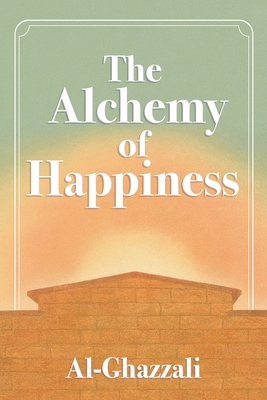The Alchemy of Happiness

The Alchemy of Happiness
The Alchemy of Happiness is a work of Islamic philosophy by Persian theologian, philosopher, mystic, and moralist Al-Ghazzali. Written around AD 1105, this was one of many works by the great man to help Muslims clarify which aspects of contemporary philosophy contradicted the faith, and which supported it.
In middle age, Al-Ghazzali was in the midst of a successful career as a well-known educator and guest at the court of a powerful vizier. Despite his accomplishments, he abandoned his lucrative posts in AD 1095 and disposed of his wealth, electing to live as an ascetic and mystic. He chose not to teach at state-sponsored schools anymore, opting for a life of seclusion and teaching at smaller, donation-supported schools.
He was considered one of the renewers of Islam, who are said to appear at the start of each century to cleanse the faith and keep it pure. This belief was supported by Al-Ghazzali's writing. He wrote over seventy works during his lifetime, with another twenty attributed to him but unconfirmed.
Near the beginning of the twelfth century, Al-Ghazzali wrote The Alchemy of Happiness. It is a shorter, Persian version of his previous work, The Revival of Religious Sciences, originally written in Arabic. It is one of his many works of Sufism, and is considered Al-Ghazzali's most important Persian writing.
The first four chapters of this book are commentary on the famous traditional saying from Muhammad: "He who knows himself knows God."
In the first chapter, Al-Ghazzali explains the knowledge of the self. Each of us has attributes of animals, devils, and angels, he writes, and it is up to us to determine which are which. Rather than indulging in earthly pleasures that come to us from our more brutish instincts, we should strive toward our angelic selves, and "Contemplate the beauty of God."
The second chapter is concerned with the knowledge of God. Starting from the premise that man did not make himself, and that everything mortal man needs has been provided from "the storehouse of creation," we begin to become aware of God's mercy and love. The events of a lifetime, even illness and suffering, are designed to lead individuals to God.
In the next chapter, we learn about the world as it is. It is a place where we are put to prepare for our future journey-that is, to prepare for the afterlife. If we spend our time caring for our bodies and nourishing our souls through knowledge and love of God, we will be prepared for the
PRP: 39.60 Lei
Acesta este Prețul Recomandat de Producător. Prețul de vânzare al produsului este afișat mai jos.
31.68Lei
31.68Lei
39.60 LeiLivrare in 2-4 saptamani
Descrierea produsului
The Alchemy of Happiness is a work of Islamic philosophy by Persian theologian, philosopher, mystic, and moralist Al-Ghazzali. Written around AD 1105, this was one of many works by the great man to help Muslims clarify which aspects of contemporary philosophy contradicted the faith, and which supported it.
In middle age, Al-Ghazzali was in the midst of a successful career as a well-known educator and guest at the court of a powerful vizier. Despite his accomplishments, he abandoned his lucrative posts in AD 1095 and disposed of his wealth, electing to live as an ascetic and mystic. He chose not to teach at state-sponsored schools anymore, opting for a life of seclusion and teaching at smaller, donation-supported schools.
He was considered one of the renewers of Islam, who are said to appear at the start of each century to cleanse the faith and keep it pure. This belief was supported by Al-Ghazzali's writing. He wrote over seventy works during his lifetime, with another twenty attributed to him but unconfirmed.
Near the beginning of the twelfth century, Al-Ghazzali wrote The Alchemy of Happiness. It is a shorter, Persian version of his previous work, The Revival of Religious Sciences, originally written in Arabic. It is one of his many works of Sufism, and is considered Al-Ghazzali's most important Persian writing.
The first four chapters of this book are commentary on the famous traditional saying from Muhammad: "He who knows himself knows God."
In the first chapter, Al-Ghazzali explains the knowledge of the self. Each of us has attributes of animals, devils, and angels, he writes, and it is up to us to determine which are which. Rather than indulging in earthly pleasures that come to us from our more brutish instincts, we should strive toward our angelic selves, and "Contemplate the beauty of God."
The second chapter is concerned with the knowledge of God. Starting from the premise that man did not make himself, and that everything mortal man needs has been provided from "the storehouse of creation," we begin to become aware of God's mercy and love. The events of a lifetime, even illness and suffering, are designed to lead individuals to God.
In the next chapter, we learn about the world as it is. It is a place where we are put to prepare for our future journey-that is, to prepare for the afterlife. If we spend our time caring for our bodies and nourishing our souls through knowledge and love of God, we will be prepared for the
Detaliile produsului










